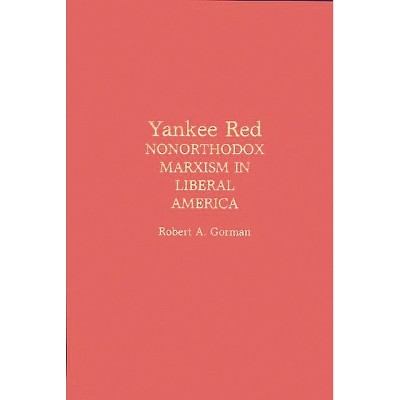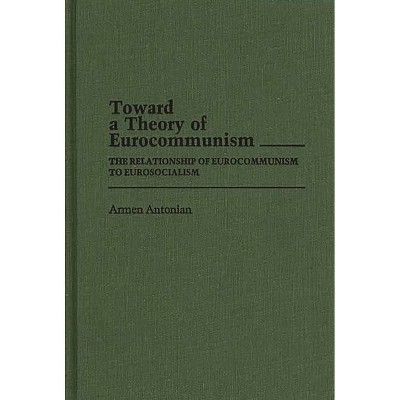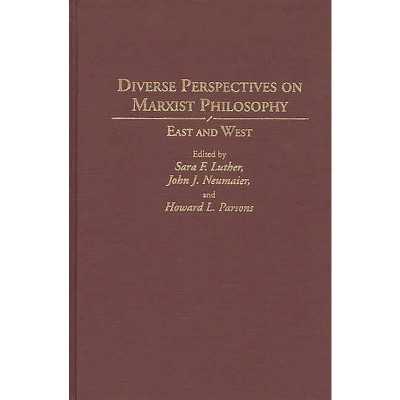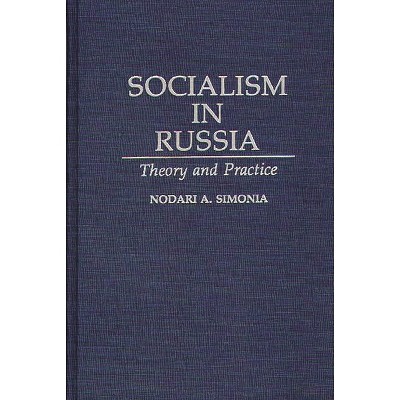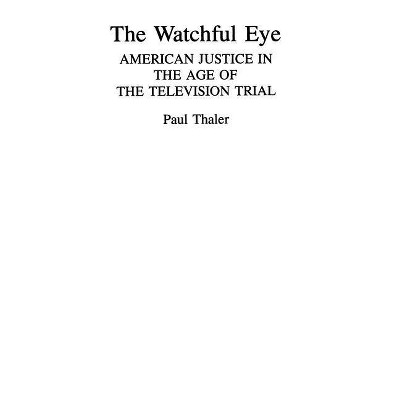Sponsored

Expectations for the Millennium - (Contributions in American History) by Peter H Buckingham (Hardcover)
In Stock
Sponsored
About this item
Highlights
- Early in the twentieth century, American socialists dared to dream of a future based on cooperation rather than competition.
- About the Author: PETER H. BUCKINGHAM teaches U.S. History and chairs the department at Linfield College in McMinnville, Oregon.
- 208 Pages
- Political Science, Political Ideologies
- Series Name: Contributions in American History
Description
About the Book
Early in the twentieth century, American socialists dared to dream of a future based on cooperation rather than competition. Socialism was a movement broad enough to encompass many points of view regarding the Red millennium. Socialist women, novelists, newspaper editors, and civil rights advocates, Christian socialists and Wobblies strained their eyes to see a future cooperative Commonwealth.
Edward Bellamy portrayed socialism in the year 2000 for millions of readers in his novels as applied Christianity. Bellamy and other utopian novelists, including Jack London and Charlotte Perkins Gilman, tried to imagine the role of women in the expected new order. Christian socialists put their faith in a future Kingdom of God on earth that honored the ideas of Karl Marx. Radical newspaper editors in Kansas, Missouri, and Texas attempted to lay out the imagined transition to socialism to their readers in simple, straightforward language that made the goal seem readily obtainable. Mormons, disappointed in the changing nature of their faith, pondered a possible socialist future. Others, such as William English Walling, worked for a time ahead that was both socialist and colorblind. Challenging the notion that they had no concrete vision, this book of essays examines the many ways in which early 20th century American socialists imagined their future.
Book Synopsis
Early in the twentieth century, American socialists dared to dream of a future based on cooperation rather than competition. Socialism was a movement broad enough to encompass many points of view regarding the Red millennium. Socialist women, novelists, newspaper editors, and civil rights advocates, Christian socialists and Wobblies strained their eyes to see a future cooperative Commonwealth.
Edward Bellamy portrayed socialism in the year 2000 for millions of readers in his novels as applied Christianity. Bellamy and other utopian novelists, including Jack London and Charlotte Perkins Gilman, tried to imagine the role of women in the expected new order. Christian socialists put their faith in a future Kingdom of God on earth that honored the ideas of Karl Marx. Radical newspaper editors in Kansas, Missouri, and Texas attempted to lay out the imagined transition to socialism to their readers in simple, straightforward language that made the goal seem readily obtainable. Mormons, disappointed in the changing nature of their faith, pondered a possible socialist future. Others, such as William English Walling, worked for a time ahead that was both socialist and colorblind. Challenging the notion that they had no concrete vision, this book of essays examines the many ways in which early 20th century American socialists imagined their future.Review Quotes
?Fascinating reading about little-known efforts.?-Future Survey May 2002
?US historians explore the alternative visions for society offered by socialists at the beginning of the 20th centry. Among the topics are Edward Bellamy's socialism as applied Christianity and the kingdom of God as cooperative commonwealth, the new women in the fiction of Charlotte Perkins Gilman and Jack London and visions of gender, the New South and racial reconciliation, and the Industrial Workers of the World.?-Reference & Research Book News
?Fascinating reading about little-known efforts.??Future Survey May 2002
"Fascinating reading about little-known efforts."-Future Survey May 2002
"US historians explore the alternative visions for society offered by socialists at the beginning of the 20th centry. Among the topics are Edward Bellamy's socialism as applied Christianity and the kingdom of God as cooperative commonwealth, the new women in the fiction of Charlotte Perkins Gilman and Jack London and visions of gender, the New South and racial reconciliation, and the Industrial Workers of the World."-Reference & Research Book News
About the Author
PETER H. BUCKINGHAM teaches U.S. History and chairs the department at Linfield College in McMinnville, Oregon. He is the author of Rebel Against Injustice: The Life of Frank P. O'Hare, America Sees Red: Anti-Communism in America, 1870's to 1980's, and International Normalcy: America's Open Door Peace.






